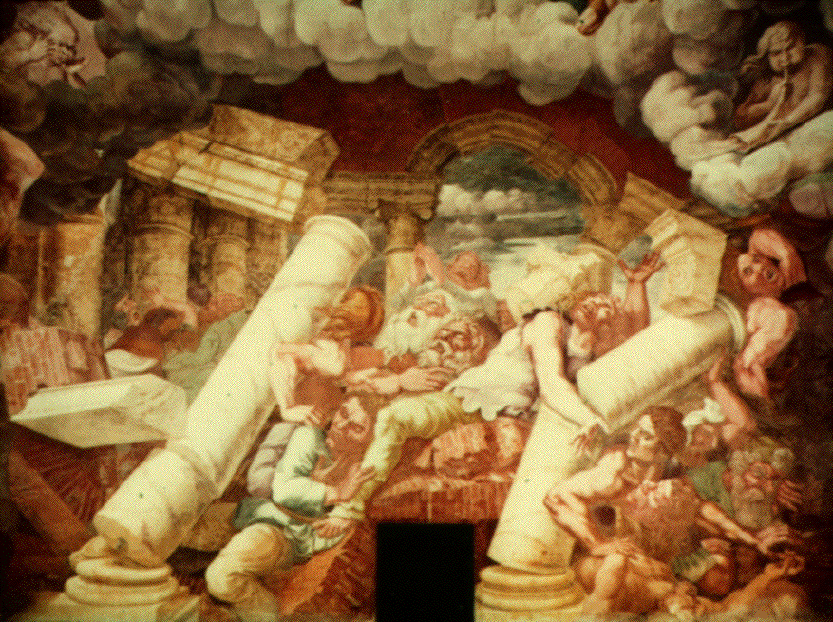Financial Innovation
by
Charles Lamson
Necessity is the mother of invention.
The Road from There to Here
Carol, a student at State University majoring in economics, is about to register for fall semester classes. She is interested in working overseas for a large financial institution, so she is attracted to a political science course (Pol Sci 505) that examines different political systems and how they influence the conduct of policy. The problem is that it is a graduate course and undergraduates are not allowed to register for such courses. Undaunted, Carol meets with the instructor and convinces him that she is fully capable of handling the material. He tells her to register for Pol Sci 296, a listing usually reserved for special independent study courses, and to attend Pol Sci 505. In this way, Carol gets to take the course she desires, and in the process evades the college regulation.
 |
In recent semesters, State University has been experimenting by offering several classes over the internet. This year it is starting a virtual university where students can earn a degree without ever coming to campus. This program will relieve the university's need for more classroom space, and enable it to serve students who live in remote geographical areas and cannot come to campus. All in all, the university, driven to cut costs while serving more students, is finding creative ways to do so. Such adaptive or innovative behavior permeates many colleges today. Innovation is also widespread in the economy at large. The driving force behind such behavior is reasonably straightforward: Participants in the economy (individuals and institutions) are simply trying to come as close as possible to achieving their objectives. The objective could be a well-rounded education likely to lead to a well-paying and interesting job in the case of a student, maximum return at the minimum risk for an investor, or maximum profitability in the case of a firm. This process, referred to as maximization, is nothing more than the attempt of economic units to do the best they can, given their objectives, and the circumstances they face. But what does "doing the best one can" mean in this context? Simply put, if the circumstances pose a barrier to achieving an objective, there is an obvious incentive to find a way to surmount, or otherwise avoid, the obstacle. As the quotation at the beginning of the post suggests, such incentives give birth to the innovation we subsequently observe. In our discussion of the financial system, I have repeatedly emphasized that change is an enduring characteristic. The current system is different from what it was 10 years ago, and it will be different 10 years hence. Previous posts have described some of the particularly noteworthy changes. Financial innovation is the creation of new financial instruments, markets,and institutions in the financial services industry. The major forces producing these changes include innovation in the ways people spend, save, and borrow funds in a globalized economy and innovation in the operations and scope of activities engaged in by financial intermediaries (FIs). In recent decades, computer and information technologies have played a major role in financial innovation. These advances have allowed for innovations in the way financial instruments are bought and sold, the creation of a variety of new financial instruments, and the globalization of financial markets that fulfill previously unmet services. Major Causes of Financial Innovation The famous economist Joseph Schumpter wrote extensively about the process of economic development, emphasizing the key role played by the entrepreneurial innovator. The prototype is a creative, insightful individual, or group of individuals, willing to take a few risks in the pursuit of higher profits. The innovation may involve the development and adoption of a cheaper method of production or the introduction of an entirely new product. Holding other factors constant, lower production costs will, of course, raise profits. Similarly, if a new product catches on, sales and profits will increase. Less dramatic but no less important examples of innovative activity include the application of newly developed or existing technology in a new field or product area and the discovery and adoption of new methods of operating that legally evade rules and regulations. In both cases, the innovation increases profits. The adoption of new computer and information technologies and the avoidance of regulations have played key roles in the process of financial innovation since the 1960s. Two other factors have also been important in generating recent financial innovation: (1) FIs have faced increasing competition from other financial and nonfinancial institutions, causing them to innovate as part of a struggle to survive in a globalized environment, and (2) as prices, inflation, interest rates, and exchange rates have become more volatile, innovations have been developed to deal with this instability. All told, these factors have caused the period since the mid-1960s to be an era of rapid financial innovation, with one innovation leading to another and resulting in a restructuring of the entire financial services sector. *SOURCE: THE FINANCIAL SYSTEM & THE ECONOMY, 3RD ED., 2003, MAUREEN BURTON & RAY LOMBRA, PGS. 278-279* END |

No comments:
Post a Comment